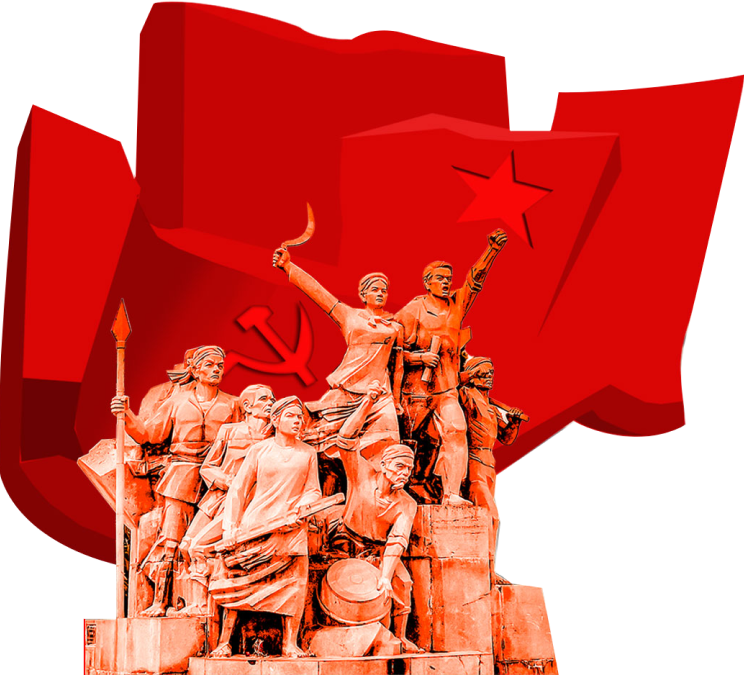Comrade Vo Van Binh - devoted his whole life to the Party's revolutionary cause
When the Nghe Tinh Soviet movement broke out, comrade Vo Van Binh actively mobilized the Nghi Loc masses to participate in the struggle to support the revolutionary movement.
Immediately after the Communist Party of Vietnam was born, many outstanding young people from Nghi Loc hometown followed the Party's call, not afraid of sacrifices and hardships, actively studied and trained to become typical senior cadres of the Party in the Nghe Tinh Soviet movement such as: Tran Van Cung, Nguyen Duy Trinh, Hoang Van Tam, Nguyen Thi Xan, Nguyen Thi Thiu, Le Huy Diep, Nguyen Thi Nha, Nguyen Thi Phuc, Bui Khac Thuu, Vo Van Binh... These comrades became steadfast communist examples in the heroic Soviet homeland.
Comrade Vo Van Binh, commonly known as Vo Binh (alias Kim, Long Giang), was born on March 16, 1906 in a patriotic family with a rich revolutionary tradition in Long Trao village (now Long Tan hamlet), Nghi Khanh commune, Nghi Loc district, Nghe An province.
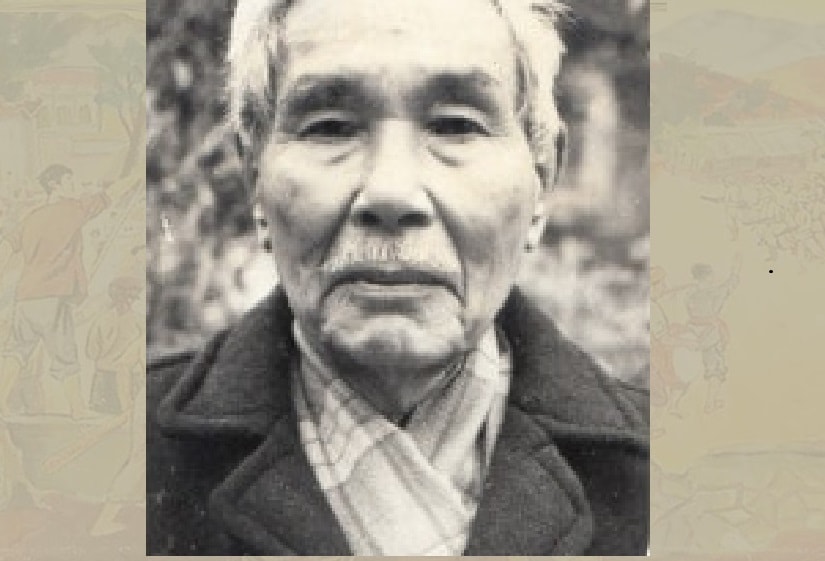
His father, Vo Van Von, a patriotic soldier in the Van Than movement, was arrested by the French colonialists, had all his property confiscated and was imprisoned in Vinh prison. He was later released but was still under house arrest. Growing up in a situation where the people were under the yoke of the colonial and feudal government, witnessing the oppression of loved ones, the patriotic young man Vo Van Binh was increasingly eager to realize his dreams and ambitions. He was soon enlightened about the revolution through patriotic literature and progressive books and newspapers.
Following in the footsteps of his predecessors, in 1925, Vo Van Binh and a number of patriotic youths sought a way to China to join the revolutionary organization founded by leader Nguyen Ai Quoc in Guangzhou, but when his plans were exposed, he returned to wear a monk's robe at Lam Tieu pagoda, hoping to hide from the enemy and make it easier to carry out revolutionary activities.
In February 1928, from a patriotic youth, Vo Van Binh became a member of the Tan Viet Revolutionary Party.
Implementing the Resolution of the Conference to establish the Communist Party of Vietnam, in March 1930, comrade Nguyen Phong Sac - Member of the Provisional Executive Committee of the Communist Party of Vietnam established the Central Party Branch in Central Vietnam in Vinh city and appointed two provisional Executive Committees in Nghe An including:
- Vinh Province (including Vinh - Ben Thuy, Hung Nguyen and Nghi Loc districts, Thanh Hoa Town).
- Nghe An Provincial Party Committee (including the remaining districts in the province).
Under the direct direction of the Central Branch and Vinh Provincial Party Committee, in April 1930, comrade Pham Duy Thanh, Nguyen Huu Co and comrade Nguyen Thuc Man gathered communist-leaning Tan Viet party members in Nghi Loc district to discuss the policy of establishing the Communist Party of Vietnam and the call of comrade Nguyen Ai Quoc on the occasion of the Party's founding.
The conference elected the provisional District Party Committee of the Communist Party of Vietnam in Nghi Loc, including comrades Nguyen Thuc Man, Nguyen Huu Co, Nguyen Dinh Xuan, Hoang Van Tam... Comrade Nguyen Thuc Man was appointed as Secretary.
Thanks to the direct guidance of the Central Branch, Vinh Provincial Party Committee and the active activities of the Provisional District Party Committee, the Party's grassroots and revolutionary mass organizations in Nghi Loc district developed rapidly. During this time, comrade Vo Van Binh was also honored to be admitted to the Party and was one of the first Party members in his hometown Nghi Loc.
Immediately after the Party Committee was established, under the direct leadership of Vinh Provincial Party Committee, Nghi Loc District Party Committee directed the Party cells to launch a widespread revolutionary movement among the masses. Many villages and communes organized the hanging of hammer and sickle flags, distributed leaflets, propagated and mobilized people to support the strike of Nam Dinh Textile Factory workers and prepared to celebrate International Labor Day on May 1, 1930.
When the Nghe Tinh Soviet movement broke out, comrade Vo Van Binh actively mobilized the Nghi Loc masses to join the struggle to support the revolutionary movement. In the early morning of May 1, 1930, under the command of the Red Peasants' Association, the people of the villages enthusiastically went up the Cua Hoi - Vinh road to gather in Loc Da village (Hung Loc). After listening to the Party representative's speech on the meaning of International Labor Day and the content of the demonstration, the group lined up, following the flag of the commander-in-chief to Vinh to coordinate with the farmers of Yen Dung, Loc Da, Duc Thinh villages... and workers of the factories to protest at the Nghe An Provincial Consulate to present demands: to increase wages, reduce working hours for workers; reduce taxes and defer taxes for workers...
The demonstration was suppressed by the Consul and Governor of Nghe An, mobilizing officials and soldiers in the city to concentrate on suppressing it, killing 6 people, injuring 18 people and arresting 100 people. The struggle that opened the Nghe Tinh Soviet movement, although suppressed, demonstrated the patriotism and solidarity of the people of Nghi Loc and Hung Nguyen districts, Vinh city... contributing to encouraging the struggle movement of the people of the two Nghe Tinh provinces to flare up strongly.
After a period of active activities, in August 1930, comrade Vo Van Binh was elected as the leader of the Khanh Due village Party cell, commander of the village's Red Self-Defense force. In October 1930, he was the Party cell secretary of Long Trao village. When the Nghe Tinh Soviet movement spread to the districts of Hung Nguyen, Nam Dan, Thanh Chuong, Nghi Loc... from November 1930 to May 1931, he was trusted by his superiors to be assigned the task of being a Sub-Committee member and Commander-in-Chief of the Red Self-Defense force in the North of Nghi Loc district. During this time, Vo Van Binh and the self-defense force made every effort to protect the masses in rallies and demonstrations, protect Party bases and destroy many evil henchmen.
In 1931, the French colonialists intensified their repression and white terror in an attempt to suppress the Nghe Tinh Soviet movement. Party cells gradually withdrew into secret operations to preserve their forces. Facing the enemy's sweep, many party members were arrested, and Vinh prison and prisons in the prefecture and district were packed with political prisoners.
On June 26, 1931, when the delegates were on their way to attend the conference of key cadres of the Nghi Loc district Party Committee in Xuan Dinh village (now Nghi Thach commune) to consolidate the organization, a traitor informed them. District chief Tran Mau Trinh and the legionnaire officer commanding the Xam market station brought soldiers to surround and arrest them. Protected by the people, some comrades escaped their encirclement, but comrade Vo Van Binh was shot and injured by the French colonialists and arrested along with 5 key revolutionary cadres of the district such as Quyen Thu, Hoang Van Tam, Dao Huyen...
After this arrest, he was sentenced to death by the Southern court. While awaiting execution, thanks to the fierce fighting spirit of the masses and his own defense skills, his sentence was reduced to life imprisonment and he was exiled to Lao Bao prison, then transferred to Buon Ma Thuot exile from October 1931 to April 1945.
At Buon Ma Thuot prison, prisoners were mistreated under extremely brutal prison conditions, and diseases were rampant, causing soldiers to slowly die. Out of 100 prisoners, 99 had malaria parasites in their blood. Some patients had high fevers for 4-5 days straight but still had to do forced labor and were not given any medicine. In such a situation, prisoners had only two paths: either die slowly in silence or unite to fight for improvements to harsh prison conditions.
Sharing the same painful situation of witnessing the daily passing of many brothers and comrades, Vo Van Binh and many other revolutionary soldiers had a common wish and determination to continue to maintain their spirit to fight in the imperialist prisons. They realized that, although imprisoned and deprived of freedom, they had to continue to fight to first win their lives. Live to destroy the enemy's plot to gradually kill the communists, live to return to the Party, to the revolutionary movement of the People. But to live and to maintain their revolutionary spirit, they could not act according to natural, isolated reactions, but had to contact each other, discuss ways to fight from the bottom up to force the enemy to reduce the harsh prison regime...
After nearly 15 years in imperialist prison, experiencing many brutal tortures, comrade Vo Van Binh still maintained his communist spirit, persistently fought against the enemy, actively studied and spread patriotism in prison. For him and his fellow political prisoners here, the imperialist prison was a new front line of struggle, a place to train communist qualities and spirit, a place to study and improve all aspects and summarize revolutionary experiences.
When the Japanese imperialists jumped into Indochina to replace the French colonialists, in the face of a strong domestic and international struggle movement, comrade Vo Van Binh and a number of revolutionary soldiers were released from prison. Before returning to his homeland, he wrote the poem “Hello, my friend”, expressing the spirit of a communist:
"Hello my friend about the wandering decision
Swear to bring hot blood to the country
Proletarian rights please remember,
Workers' and peasants' solidarity is still engraved in our hearts,
The one who stays in the storm must be careful of the dust and sand.
The one who returns to fight overcomes the wind and frost
Together we wipe out the wolves
Enjoy peace in East Asia".
Returning to his homeland after 15 years of imprisonment and torture in prison, despite his health being much weaker, he quickly contacted grassroots Party organizations and actively mobilized the masses to prepare for the General Uprising in Nghe An.
The August Revolution broke out in Vinh, and he was assigned by his superiors to be the Deputy Secretary of the City Party Committee and Chairman of the City's Viet Minh. The August Revolution succeeded, while people across the country were trying to consolidate the revolutionary government and gradually stabilize their lives, the Vang Pao bandits intensified their attacks on the western region of Nghe An. On June 28, 1946, comrade Vo Van Binh was trusted by his superiors to be assigned the task of being a Special Task Commissioner and Commander-in-Chief of the Road 7 - Western Nghe An Front. In 1948-1949, he was a political commissar and Secretary of the Western Nghe An - Thanh Hoa Front Party Cell.
After the situation in Western Nghe An and Thanh Hoa stabilized, he continued to be assigned as Deputy Political Commissar and Secretary of the Party Committee of Regiment 51 under Command 4. From January to August 1951, he was Secretary and Political Commissar of Regiment 44, then sent to study at the Army Officer School. After completing the course, he was retained as a training staff member, holding the position of Deputy Secretary of the Party Committee of Battalion 4, Army Officer School. In February 1957, he was a member of the Board of Directors and Head of Logistics of the Army Officer School. In March 1957, after the land reform event, he was selected and seconded to work as a correction officer in Thanh Chuong and Nghi Loc districts, Nghe An province.
When the North was enthusiastically moving forward to build socialism, in August 1958, he was transferred to another sector to build the economy, serving as Commander-in-Chief of the Red Construction Site, concurrently Director and Secretary of the Party Committee of Binh Minh Farm, located in Kim Son district, Ninh Binh province.
After completing his mission at Binh Minh Farm, from January 1961, he was trusted by his superiors to work at the Ministry of Agriculture, successively holding the positions of Deputy Director of the Land Reclamation Planning Department; Director of the Animal Husbandry Department (June 1963); Director of the Personnel Organization Department (July 1967), Deputy Director of the Farm Management Board (July 1971). In July 1975, he retired under the regime when he was nearly 70 years old.
The life and career of comrade Vo Van Binh is a typical example of a revolutionary soldier who wholeheartedly strived for the revolutionary cause of the Party. Wherever he was, whatever he did, he always followed the organization's assignment, wholeheartedly serving the revolution and the people. With such noble contributions, he was honored to receive noble awards from the Party and the State such as: First-class Independence Medal; Second-class Feat of Arms Medal; Second-class Victory Medal; Glorious Soldier Medal 1, 2, 3.
Due to old age and poor health, on February 19, 1995 (Lunar calendar), he passed away at the Vietnam-Soviet Friendship Hospital at the age of 90. His body was buried at Mai Dich Cemetery - Hanoi.
In 2019, in Ninh Binh, to honor the contributions of comrade Vo Van Binh to Kim Son land, the Provincial People's Committee decided to name a boulevard in Kim Son town after him.
With 65 years of Party membership, including nearly 15 years of living and fighting in imperialist prisons, comrade Vo Van Binh devoted his entire life to the Party's revolutionary cause, forever a shining example for cadres, party members and the young generation today and tomorrow to learn from and follow.
------
References:
- According to the Vo Van family genealogy, Long Tan village, Nghi Khanh commune
- Biography of party member Vo Van Binh.
- Nghi Loc People - Vu Dang Hien
- History of Nghi Loc District Party Committee (1930-2010)
- History of Buon Ma Thuot Prison (1930-1945)

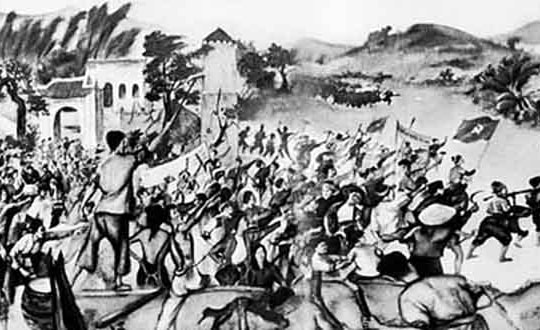
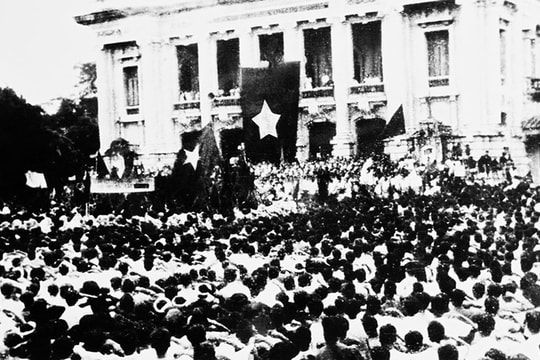
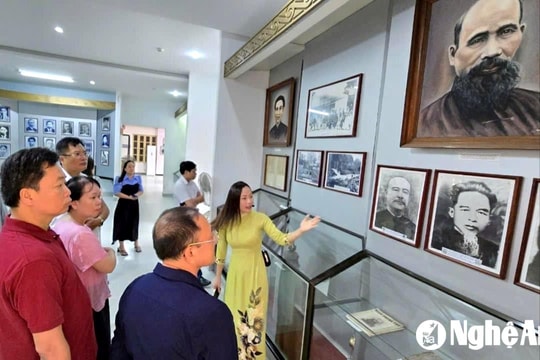
.jpg)

